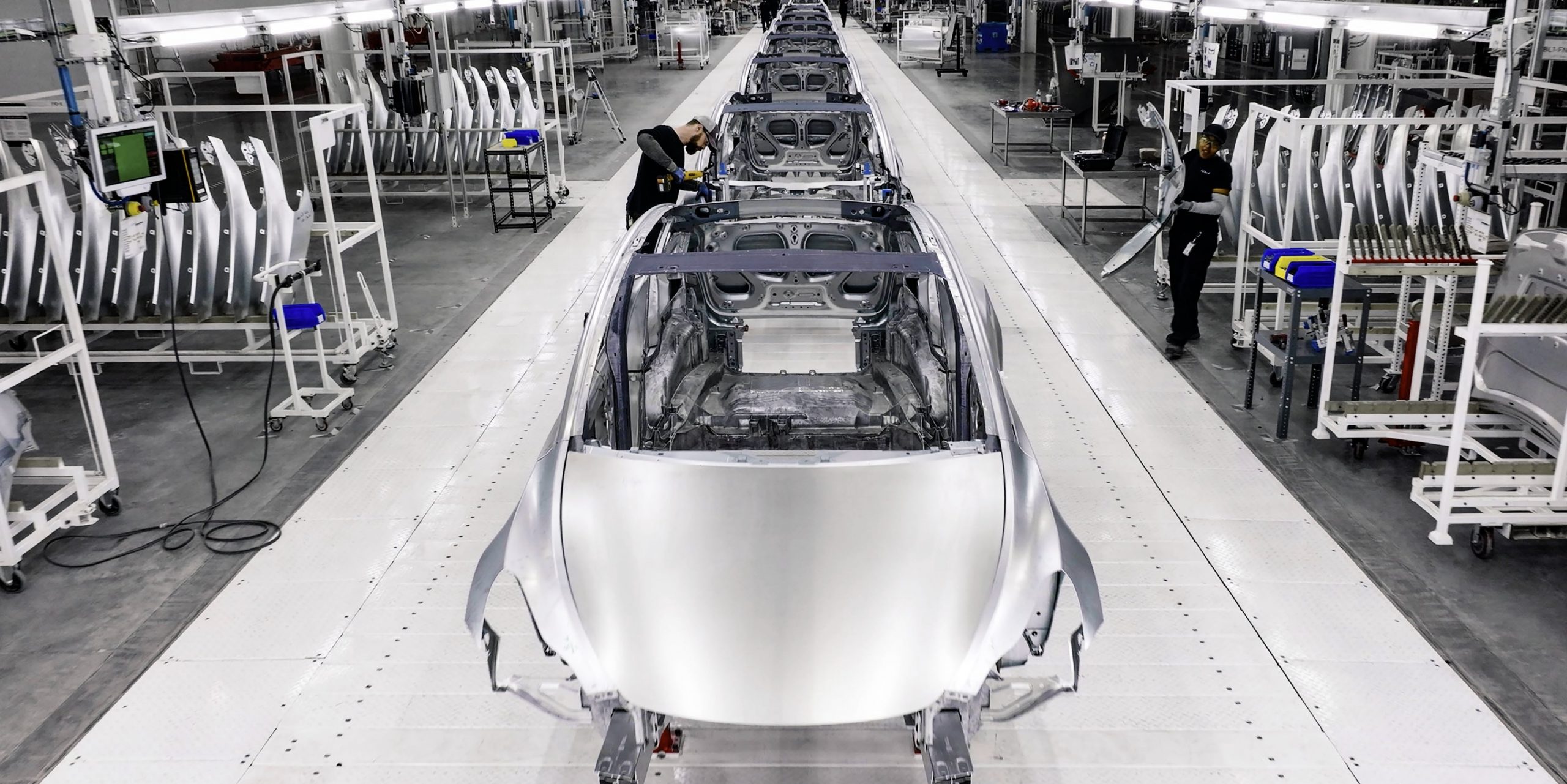
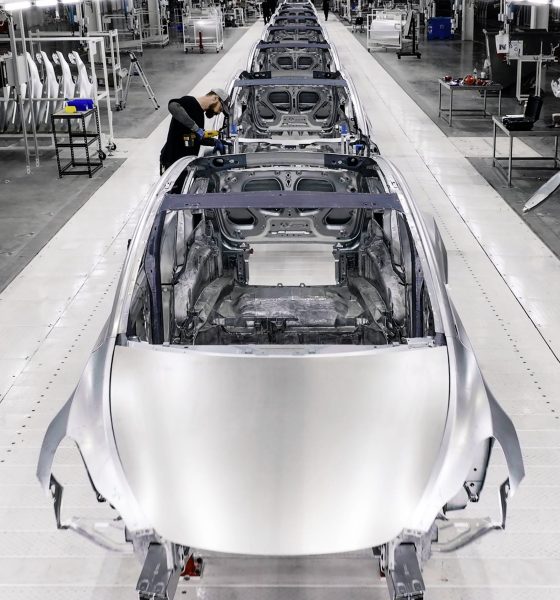
News
Tesla’s ZEV credits in the United States are poised to become even more valuable
Tesla has made a fortune of sorts selling ZEV credits to rival automakers, but with the passing of the United States Inflation Reduction Act, it appears that the electric vehicle maker’s credits could become an even more desirable commodity. This should help Tesla bolster its numbers, which would be extremely helpful as the company attempts to reach its target of 20 million vehicles by 2030.
The Inflation Reduction Act is poised to shake up the US auto sector, but even with its disruption, automakers would still need to collect ZEV credits in California and other ZEV states, which have applied some of CA’s regulations. Under the system, automakers gain anywhere from partial to multiple credits based on a zero-emission vehicle’s range towards requirements based on the company’s overall sales volume.
Automakers are allowed to stockpile EV credits, but in the event that a company fails to sell enough zero-emission vehicles, they must purchase credits from other carmakers. Tesla has been a go-to company for ZEV credits for years, thanks in no small part to the company’s electric-only lineup. And with Tesla’s sales growing at an immense pace, the EV maker is poised to sit on an even bigger hoard of environmental credits that can be sold to rival carmakers.
As noted by Automotive News, ZEV rules are expected to change in 2026, and it will make things quite a bit trickier for companies that still depend on fossil fuel-powered cars. Under the updated system, each battery or fuel cell electric car with a minimum of 150-mile battery range will receive only one credit. Credits will also have a five-year validity, unlike those earned today, which do not have an expiry date.
Tesla has earned the most credits in California, and at the end of 2020 — the most recent year when ZEV states reported automaker balances — the EV maker logged an impressive stockpile of 752,445 credits. It should be noted that 2020 was a year when Tesla sold around 500,000 vehicles. The EV maker sold 936,172 cars the following year. Estimates suggest that Tesla had collected about 2 million credits from the start of 2021 to the end of 1H22.
Tesla booked about $2.1 billion in revenue from credit sales in 2021 and Q1 2022. And while the value of a ZEV credit could be flexible depending on demand, it appeared that Tesla averaged about $3,500 each, according to Auto News.
California is at the forefront of the United States electric vehicle movement, and it appears that it intends to keep its place. The state recently approved an initiative to increase its minimum zero-emission vehicle requirement to 35% of a carmaker’s sales by 2026, and 100% in 2035. With California adopting this aggressive target, a lot of the other ZEV states could follow. And considering that California and the other 14 ZEV states account for almost 40% of new vehicle sales in the United States, the demand for ZEV credits could very well increase.
And that, ultimately, is a golden opportunity for Tesla and its growing hoard of ZEV credits.

Cybertruck
Tesla confirms date when new Cybertruck trim will go up in price
Tesla has officially revealed that this price will only be available until February 28, as the company has placed a banner atop the Design Configurator on its website reflecting this.
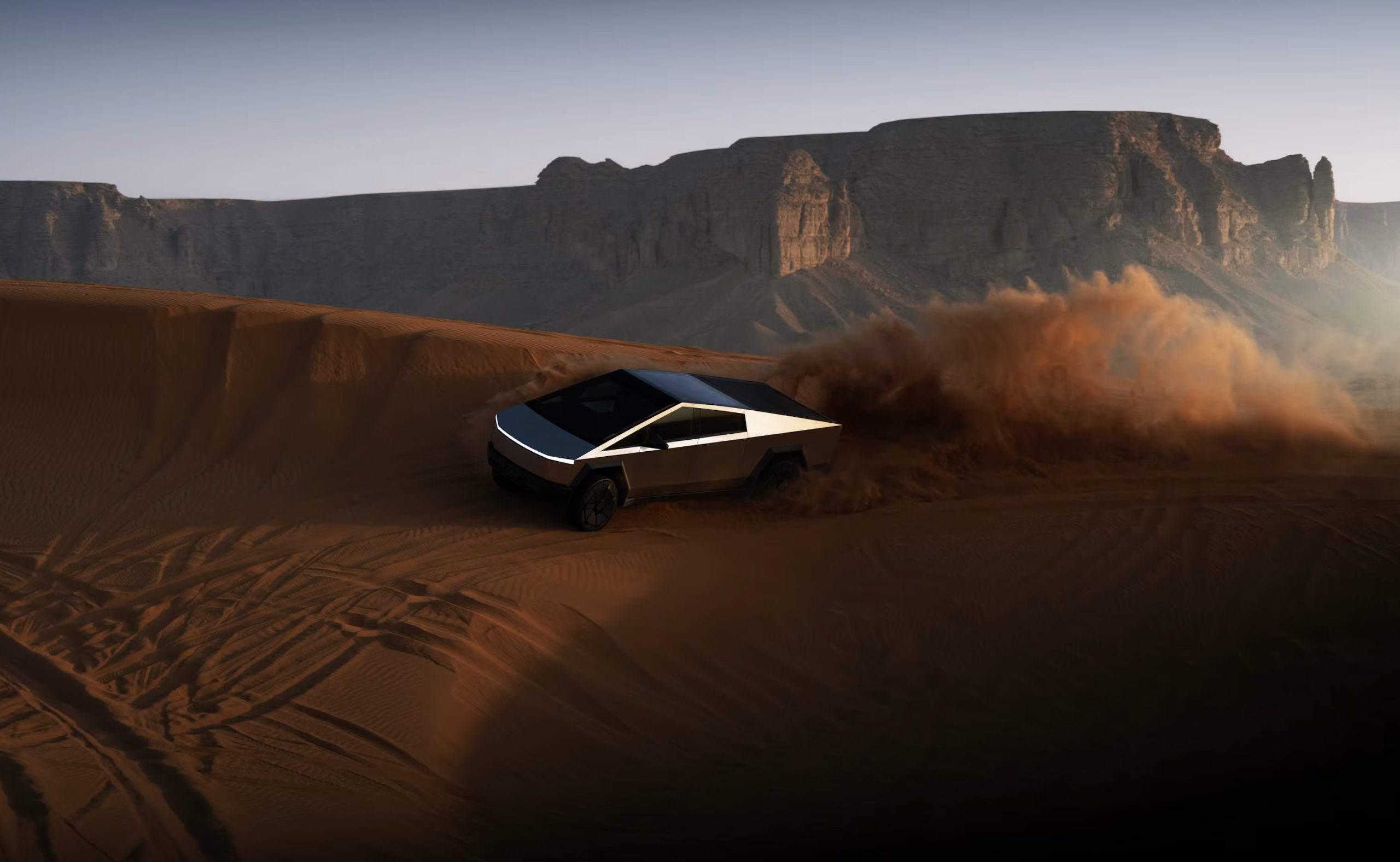
Tesla has confirmed the date when its newest Cybertruck trim level will increase in price, after CEO Elon Musk noted that the All-Wheel-Drive configuration of the all-electric pickup would only be priced at its near-bargain level for ten days.
Last week, Tesla launched the All-Wheel-Drive configuration of the Cybertruck. Priced at $59,990, the Cybertruck featured many excellent features and has seemingly brought some demand to the pickup, which has been underwhelming in terms of sales figures over the past couple of years.
Tesla launches new Cybertruck trim with more features than ever for a low price
When Tesla launched it, many fans and current owners mulled the possibility of ordering it. However, Musk came out and said just hours after launching the pickup that Tesla would only keep it at the $59,990 price level for ten days.
What it would be priced at subsequently was totally dependent on how much demand Tesla felt for the new trim level, which is labeled as a “Dual Motor All-Wheel-Drive” configuration.
Tesla has officially revealed that this price will only be available until February 28, as the company has placed a banner atop the Design Configurator on its website reflecting this:
NEWS: Tesla has officially announced that the price of the new Cybertruck Dual-Motor AWD will be increasing after February 28th. pic.twitter.com/vZpA521ZwC
— Sawyer Merritt (@SawyerMerritt) February 24, 2026
Many fans and owners have criticized Tesla’s decision to unveil a trim this way, and then price it at something, only to change that price a few days later based on how well it sells.
Awful way to treat customers – particularly when they already sent out a marketing email announcing the $59,990 truck…with zero mention of it being a limited-time offer.
— Ryan McCaffrey (@DMC_Ryan) February 24, 2026
It seems the most ideal increase in price would be somewhere between $5,000 and $10,000, but it truly depends on how many orders Tesla sees for this new trim level. The next step up in configuration is the Premium All-Wheel-Drive, which is priced at $79,990.
The difference between the Dual Motor AWD Cybertruck and the Premium AWD configuration comes down to towing, interior quality, and general features. The base package is only capable of towing up to 7,500 pounds, while the Premium can handle 11,000 pounds. Additionally, the seats in the Premium build are Vegan Leather, while the base trim gets the textile seats.
It also has only 7 speakers compared to the 15 that the Premium trim has. Additionally, the base model does not have an adjustable ride height, although it does have a coil spring with an adaptive damping suspension package.
Cybertruck
Tesla set to activate long-awaited Cybertruck feature
Tesla will officially activate the Active Noise Cancellation (ANC) feature on Cybertruck soon, as the company has officially added the feature to its list of features by trim on its website.
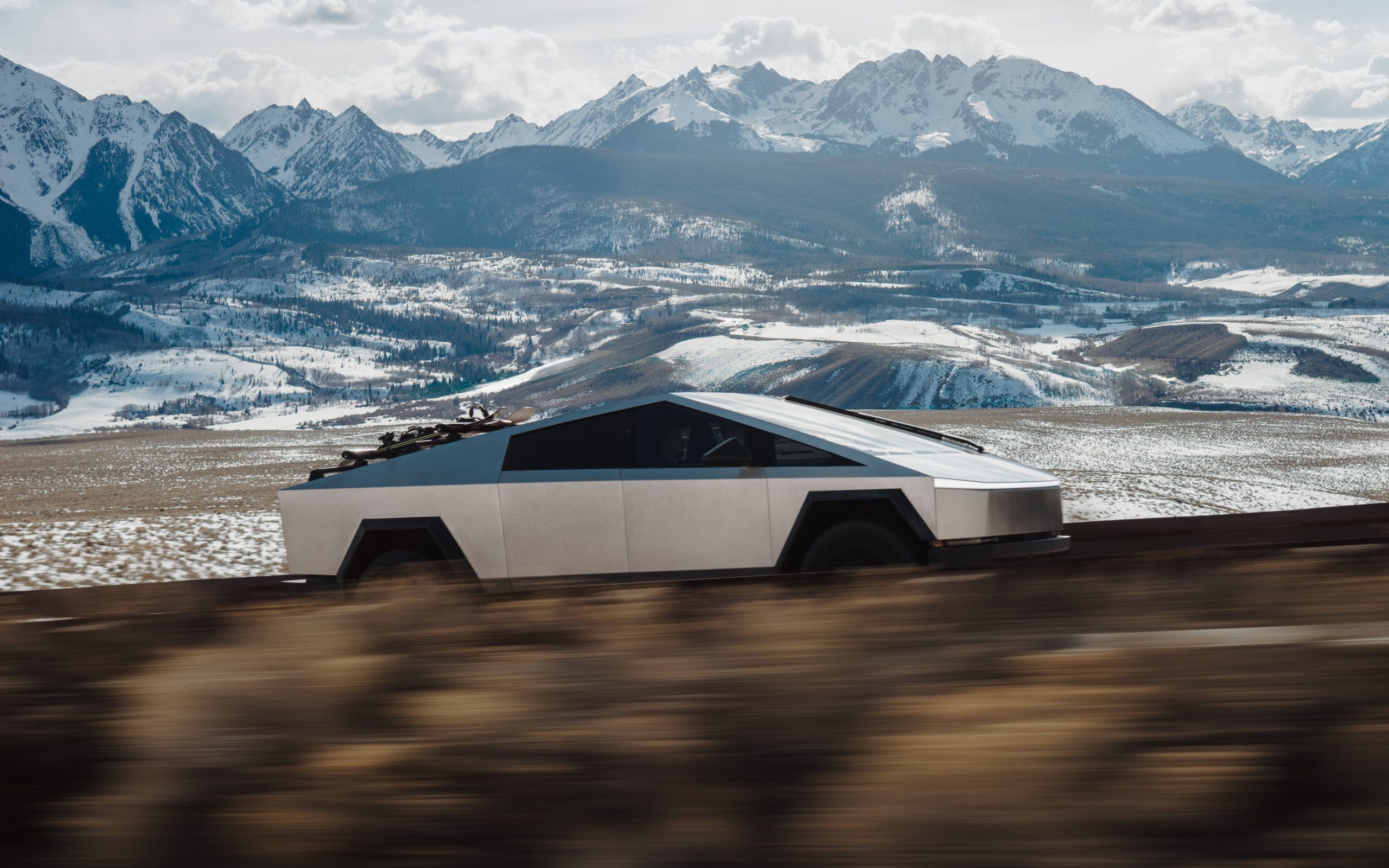
Tesla is set to activate a long-awaited Cybertruck feature, and no matter when you bought your all-electric pickup, it has the hardware capable of achieving what it is designed to do.
Tesla simply has to flip the switch, and it plans to do so in the near future.
Tesla will officially activate the Active Noise Cancellation (ANC) feature on Cybertruck soon, according to Not a Tesla App, as the company has officially added the feature to its list of features by trim on its website.
Tesla rolls out Active Road Noise Reduction for new Model S and Model X
The ANC feature suddenly appeared on the spec sheet for the Premium All-Wheel-Drive and Cyberbeast trims, which are the two configurations that have been delivered since November 2023.
However, those trims have both had the ANC disabled, and although they are found in the Model S and Model X, and are active in those vehicles, Tesla is planning to activate them.
In Tesla’s Service Toolbox, it wrote:
“ANC software is not enabled on Cybertruck even though the hardware is installed.”
Tesla has utilized an ANC system in the Model S and Model X since 2021. The system uses microphones embedded in the front seat headrests to detect low-frequency road noise entering the cabin. It then generates anti-noise through phase-inverted sound waves to cancel out or reduce that noise, creating quieter zones, particularly around the vehicle’s front occupants.
The Model S and Model X utilize six microphones to achieve this noise cancellation, while the Cybertruck has just four.
Tesla Cybertruck Dual Motor AWD estimated delivery slips to early fall 2026
As previously mentioned, this will be activated through a software update, as the hardware is already available within Cybertruck and can simply be activated at Tesla’s leisure.
The delays in activating the system are likely due to Tesla Cybertruck’s unique design, which is unlike anything before. In the Model S and Model X, Tesla did not have to do too much, but the Cybertruck has heavier all-terrain tires and potentially issues from the aluminum castings that make up the vehicle’s chassis, which are probably presenting some challenges.
Unfortunately, this feature will not be available on the new Dual Motor All-Wheel-Drive configuration, which was released last week.
News
Tesla Model S and X customization options begin to thin as their closure nears
Tesla’s Online Design Studio for both vehicles now shows the first color option to be listed as “Sold Out,” as Lunar Silver is officially no longer available for the Model S or Model X. This color is exclusive to these cars and not available on the Model S or Model X.
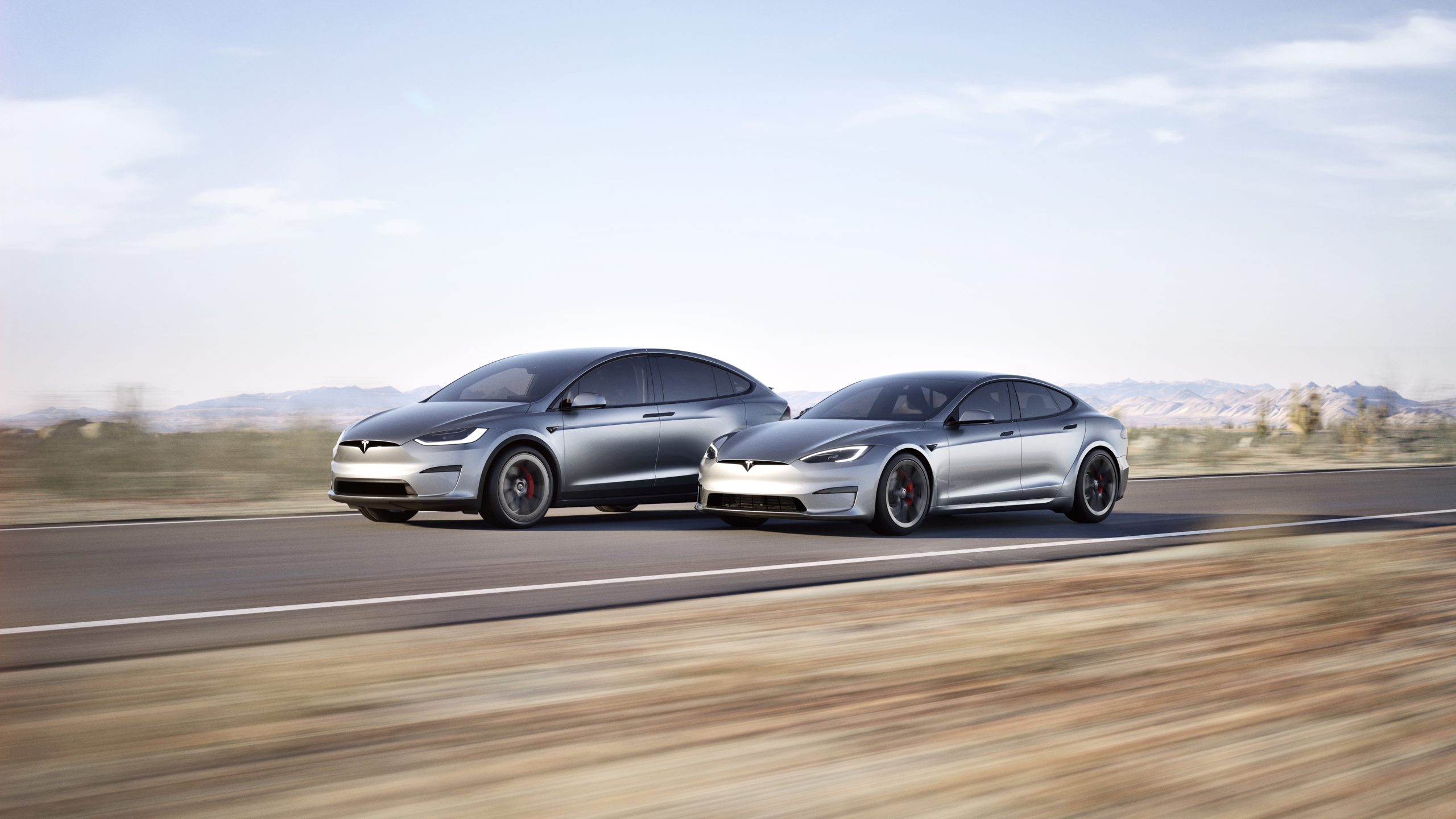
Tesla Model S and Model X customization options are beginning to thin for the first time as the closure of the two “sentimental” vehicles nears.
We are officially seeing the first options disappear as Tesla begins to work toward ending production of the two cars and the options that are available to those vehicles specifically.
Tesla’s Online Design Studio for both vehicles now shows the first color option to be listed as “Sold Out,” as Lunar Silver is officially no longer available for the Model S or Model X. This color is exclusive to these cars and not available on the Model S or Model X.
🚨 Tesla Model S and Model X availability is thinning, as Tesla has officially shown that the Lunar Silver color option on both vehicles is officially sold out
To be fair, Frost Blue is still available so no need to freak out pic.twitter.com/YnwsDbsFOv
— TESLARATI (@Teslarati) February 25, 2026
Tesla is making way for the Optimus humanoid robot project at the Fremont Factory, where the Model S and Model X are produced. The two cars are low-volume models and do not contribute more than a few percent to Tesla’s yearly delivery figures.
With CEO Elon Musk confirming that the Model S and Model X would officially be phased out at the end of the quarter, some of the options are being thinned out.
This is an expected move considering Tesla’s plans for the two vehicles, as it will make for an easier process of transitioning that portion of the Fremont plant to cater to Optimus manufacturing. Additionally, this is likely one of the least popular colors, and Tesla is choosing to only keep around what it is seeing routine demand for.
During the Q4 Earnings Call in January, Musk confirmed the end of the Model S and Model X:
“It is time to bring the Model S and Model X programs to an end with an honorable discharge. It is time to bring the S/X programs to an end. It’s part of our overall shift to an autonomous future.”
Fremont will now build one million Optimus units per year as production is ramped.








